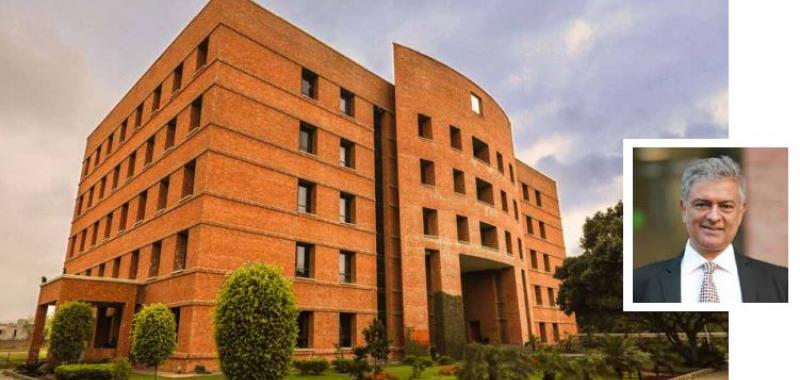
Annual Message from the
Honorary Dean, Suleman Dawood School of Business, LUMS (Academic Year 2019-20)
This academic year marks a major transition at the Suleman Dawood School of Business (SDSB). Following the accreditation of the business school in 2019 by the Association to Advance Collegiate Schools of Business (AACSB), we have mobilised some key changes and initiatives. SDSB has revised its strategy to focus on the development of ideas and people to shape business and society. This places the business school at the interface between academia and society with a firm and explicit social commitment. It also positions the School among the most forthright globally in committing to a mission that is much wider than the pursuit of pure economic growth.
Beyond simply articulating its mission, how is the business school operationalising its aspirations? A major initiative is the launch of the three new Master of Science programmes in Fall 2020. These are one-and-half year programmes in the fields of healthcare management and innovation, technology management and entrepreneurship, and business and public policy. These represent key priority areas where the deployment of educated individuals with the right level of expertise can help power the country’s growth. The decision to inaugurate three new graduate degrees simultaneously is an audacious move, but it is dictated by the need to respond to the immediate requirements for SDSB trained graduates in critical sectors of the economy.
SDSB continues to break new ground in many other ways. This includes the decision to award 50% tuition fee scholarships to all women admitted into any professional graduate programme at the business school. Across the MBA and EMBA cohorts, this has already resulted in a 600% increase in women with awards at SDSB. Within two years, the MBA class is anticipated to go from a 5% women representation to one third. Across the administrative staff structure, the ratio of females to males is now 1:1, and two-thirds of manager level positions are held by women. Two out of our four Associate Deans are women, which spells a first in the history of SDSB. The availability of feminine hygiene products in female toilets at SDSB has made LUMS, perhaps, the first ‘period friendly’ university in South Asia. The Centre for Business and Society (CBS), housed at the SDSB has, within a year, become a foreground for debates, policy discussions, research on new ideas, student internships, and events at the intersection of social and business concerns that affect everyone.
SDSB has mounted a multitude of public events this past year, which have brought to light how differing views and practices can propound a mosaic of strength and positivity across communities of stakeholders far and near. It is well acknowledged that SDSB has one of the largest case study repositories in Asia. Under the Open Access Case Initiative, we have made SDSB’s case repository freely available to university educators in Pakistan and globally to help them acquire quality business educational material relevant to their students. We are also a content partner for our cases with Harvard Business Publishing. Selected cases written by our faculty are available through the HBP online catalogue.
Servicing the South Asia context is only part of the SDSB story. The business school certainly attracts solid, accomplished scholars to come through its doors. But this is not one-way as we house academics who, after some time, leave the business school to take up positions elsewhere in other countries across all continents. This is because institutions around the world laud our focus on pure and applied research and our faculty’s teaching excellence. In this way, SDSB is the one Pakistani business school that is helping to build the capacity of business schools globally.
These and other steps, which we prioritise at SDSB are important not only to signal the currency of thinking and action but also because we have the capacity, and therefore the obligation, to effect positive social change. The university is a sufficiently significant trendsetter in higher education—so much so that LUMS leads the way with its practices and initiatives that are then replicated by other universities in Pakistan and outside with consequences that impact society with a multiplicity of good effects.








